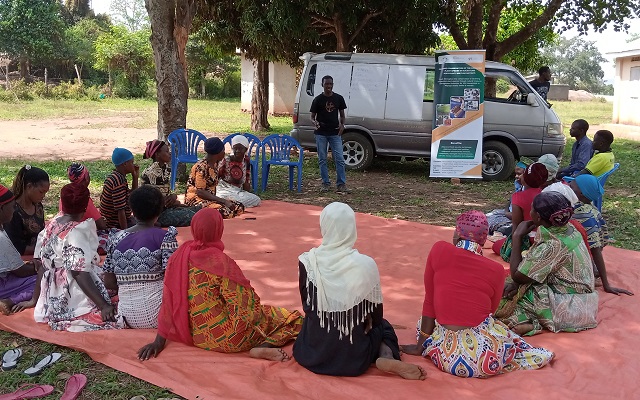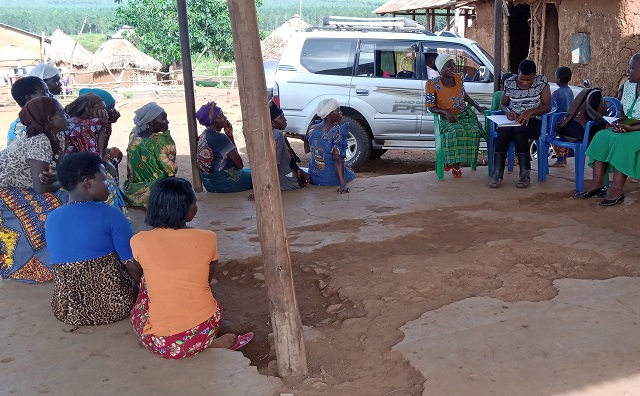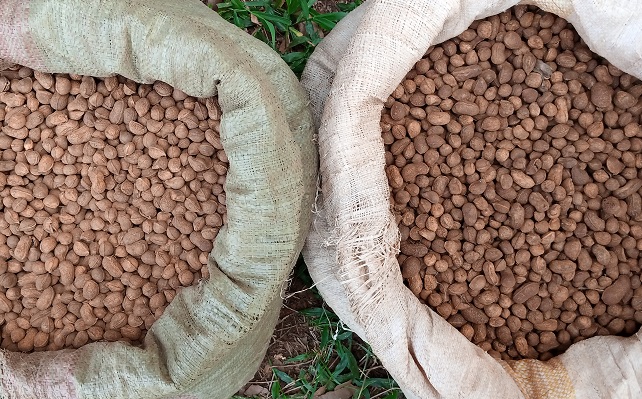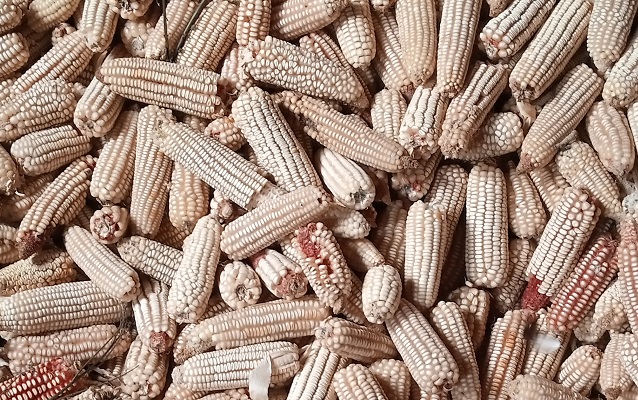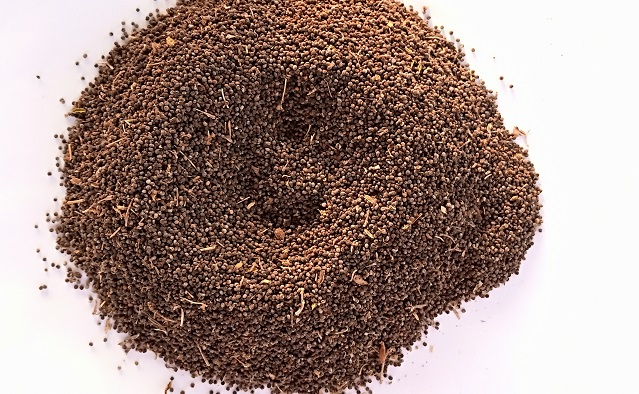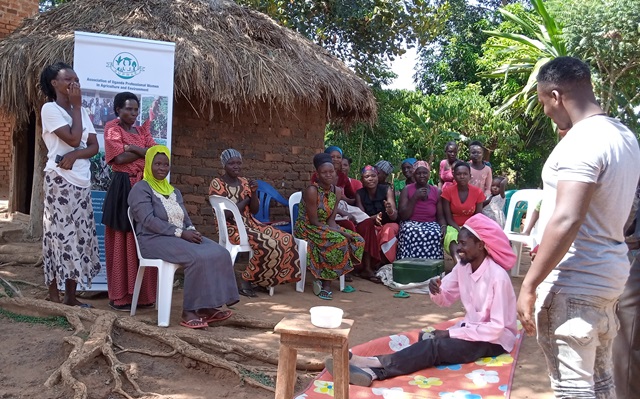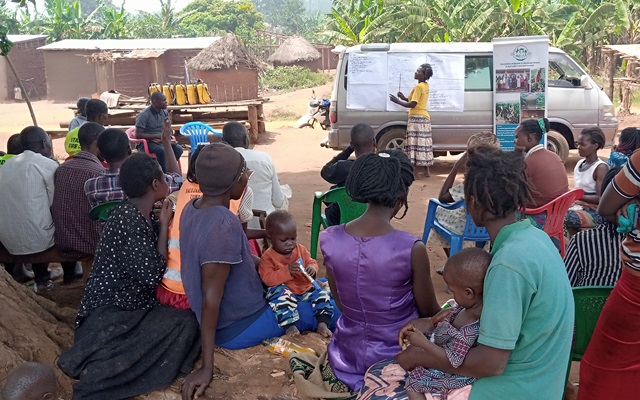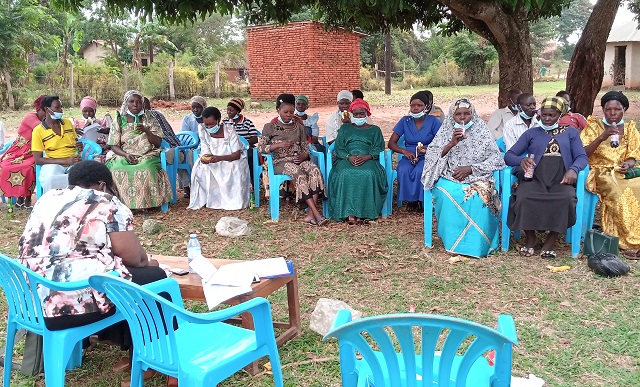Onfarm conservation of indigenous plant species in Mayuge District
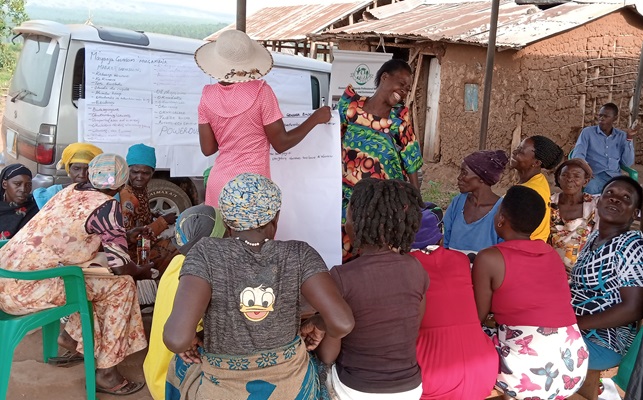
Farmers in the Mayuge district of Uganda are increasingly relying on monoculture sugarcane cultivation that depend on adapted plant species. Monocultural farming systems reduce plant diversity and threaten native plant species. To counteract, this IKI Small Grants project strengthens the conservation of declining native plants through natural resource management for 250 households. The project identifies and documents threatened native plants and prioritises them for propagation using improved agricultural practices. Smallholder farmers are supported to establish community seed banks, tree nurseries, and backyard gardens, cultivating indigenous plants. In addition, the project improves the availability, accessibility, and sustainable use of these plants by promoting their use through radio posts and print campaigns. A dialogue with communal policy makers is initiated to formulate on-farm biodiversity conservation ordinances and to politically anchor project interventions.
INITIAL SITUATION
Mayuge district in Uganda is located about 120 kilometres east of Kampala. Subsistence agriculture is the main source of income for the local population. The rapidly growing population has contributed to deforestation of the original tropical forest and to a huge decline of native plant species. The lack of awareness of the importance of maintaining biodiversity on agricultural land in the region as well as lacking decision-making power of women and the inadequate enforcement of biodiversity laws lead to an intensification of the problem.
TARGET GROUP
The project primarily targets local communities with 500 direct beneficiaries in 250 households. In addition, the project reaches another 1,175 household members and local radio listeners. The project works with 10 existing farmer groups to implement its interventions, of which 7 are women headed. The project empowers group members to conserve biodiversity on their private farms by passing on their traditional knowledge and skills.
APPROACH AND ACTIVITIES
The IKI Small Grants project strengthens the conservation of declining native plant species through natural resource management initiatives for 250 households in Mayuge district. The people of Busoga region and Mayuge district are educated on the importance of conserving plant biodiversity.
The project identifies and documents native plants threatened with extinction. A sub-target group is selected to advance the cultivation of endangered plant species, using improved cultivation methods. Farmers further disseminate the produced planting material – mostly seeds – to improve its availability and accessibility. They establish community seed banks, backyard gardens, tree nurseries, and demonstration forests to ensure the revival of indigenous plant species. 50 acres are planted with indigenous plants.
In addition to this, the visibility of the project and awareness raising is strengthened through print media and radio.
As a third pillar, the project implements a dialogue with policy makers at the local government level to formulate on-farm plant diversity conservation ordinances. It is particularly important for the project to empower women in decision-making processes in the local communities, as well as to strengthen the dissemination of indigenous and local knowledge and to include it in all sub-activities.
LATEST PROJECT HIGHLIGHTS AND IMPACTS
- Project finalised
- Formulating and enacting the local governments “On-farm Conservation of Indigenous plant species Bye-Law”, based on an inventory of declining indigenous plants
- 10 farmer groups reached, 7 out of 10 are chaired by women
- 255 households establish gardens of indigenous plants covering 50 acres
- Establishment of one tree nursery and capacity building of farmers in improved farming and tree management practices
- Increased awareness created on the importance of indigenous plants and their conservation using IEC materials and radio programs
- Due to leadership training, women were empowered to take up leadership positions
CAPACITY DEVELOPMENT
IKI Small Grants supports AUPWAE in their organisational capacity development through:
- A workshop on proposal writing, to improve proposals for different funding mechanisms
- A training on finance management for non-finance managers
ABOUT THE ORGANISATION
AUPWAE was founded in 1992 and registered as a non-profit organization in 1998 with a mandate to operate in all districts of Uganda. AUPWAE has 300 female professionals working in both the private and the public sector in all regions of Uganda.
AUPWAE´s mission is to promote improved welfare of rural women, girls, and professional women by advocating and lobbying for policies and interventions which create opportunities for their skills and knowledge development

